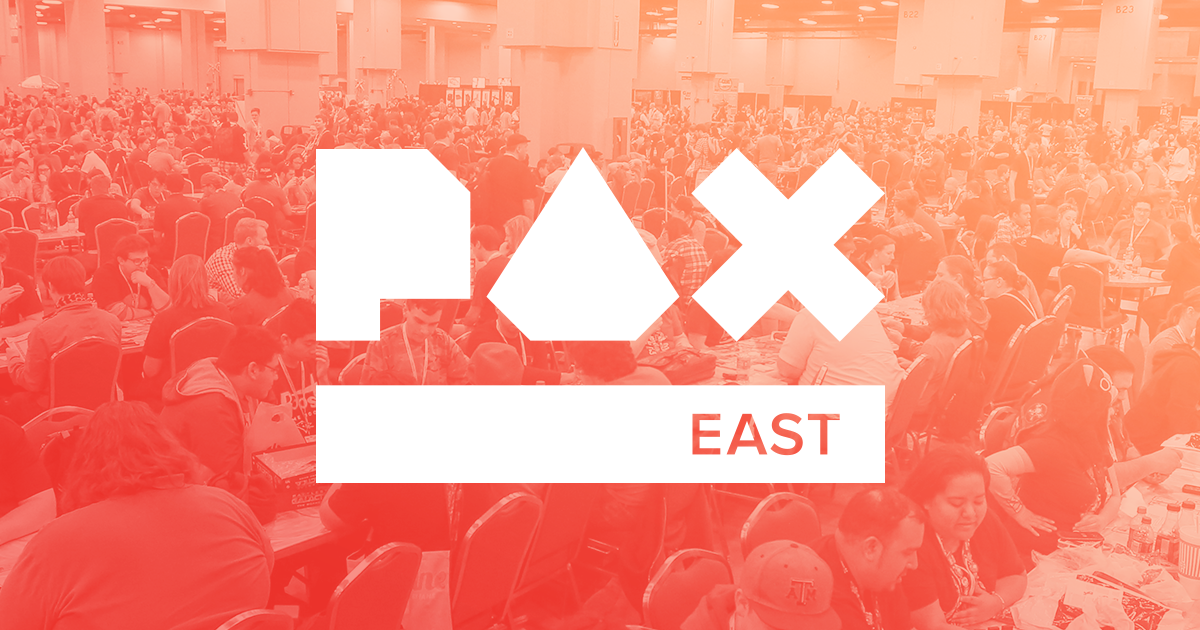
On the third day of the convention, I was able to see some of the more high-profile games of the show. For the purpose of this write-up, I’ll be grouping together some similar titles that are being published by the same companies.
Control

Remedy Entertainment is a studio that has built up enough cache over the years that their projects will always be worth keeping an eye on. The latest from the developers of Max Payne and Alan Wake, Control follows a member of a government bureau that is tasked with investigating supernatural phenomenon. She also happens to have telekinetic powers which allow her to float, launch objects with her mind and create defensive shields of debris. Her service weapon is a transforming pistol that can be used in a number of different firing modes. While the game still needs quite a bit of optimization, levying your psychic powers to fling enemies, fly through the air, and rip apart the environment is as gratifying as one would expect. Your gun’s many forms align with the familiar paradigms of shooter weapons, such as shotguns and railguns, but I wouldn’t be surprised if things got a little bit weirder here as well. And since your weapon doesn’t use ammo, instead recharging over time, you are free to switch to whatever tool fits the current situation the best. This recharge time is also a smart contrivance because it forces you to switch between using your powers and your service weapon, instead of just relying on one.
However, one of the most striking aspects of Remedy’s games is how they tell stories, and more specifically, which influences inspire them. At first, it wasn’t immediately obvious to me what specific brand of fiction Control was building on. But after talking to one of the developers, the work of Jeff VanderMeer and House of Leaves came up, two novels which have clearly inspired the game’s aesthetic. VanderMeer’s Southern Reach Trilogy, the first part of which inspired the film Annihilation, is in part about the process of transformation. The Bureau of Control, a government building that is being invaded by some unknown force, is similarly in a constant state of flux. Whether Control will also adopt the deeply unnerving and cryptic storytelling practices of Annihilation and House of Leaves is unknown, but an exciting prospect nonetheless.
Shovel Knight: King of Cards and Cyber Shadow
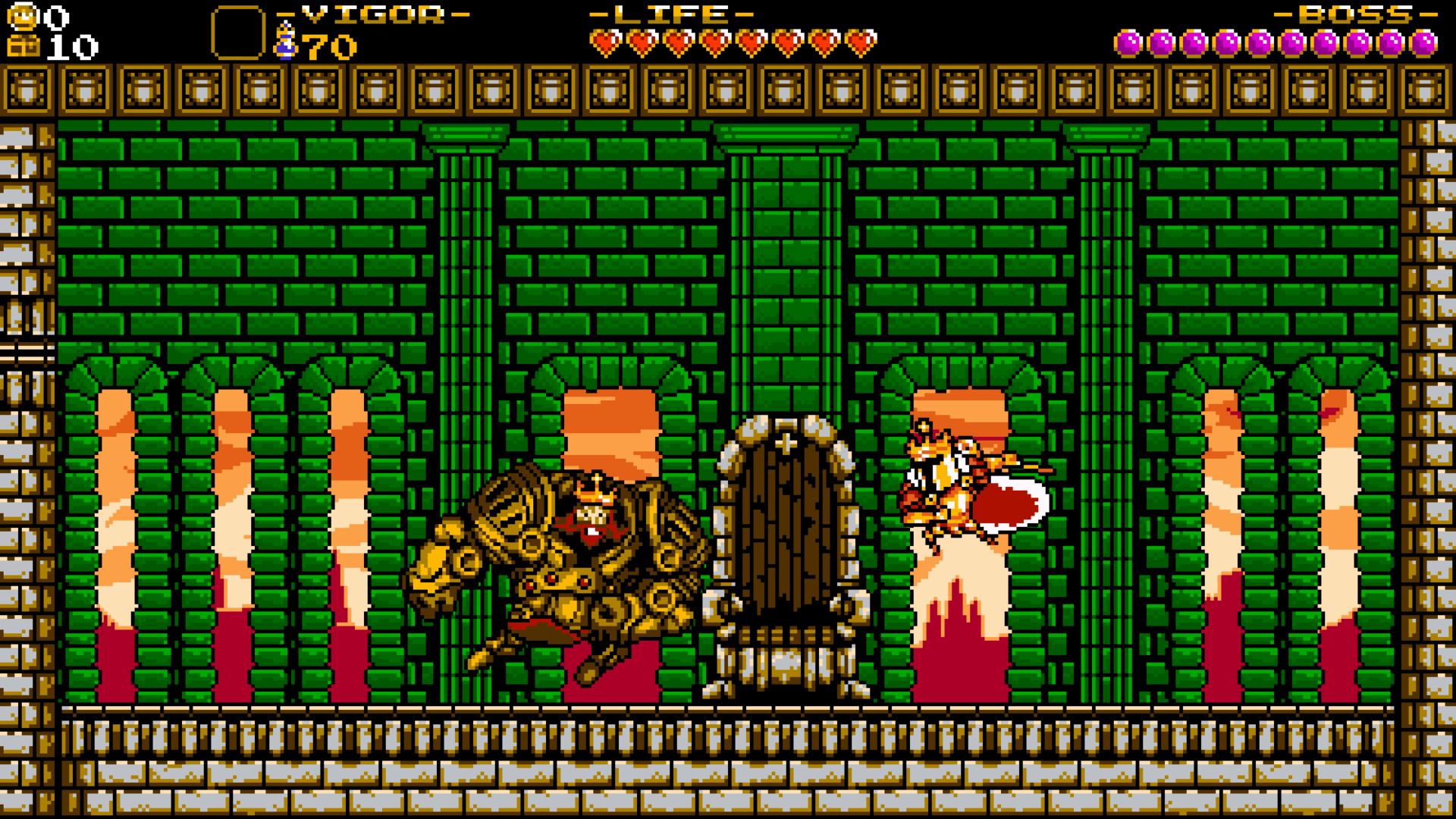
After many many years of making Shovel Knight games, it appears that Yacht Club Games is on the precipice of completing their initial Kickstarter promises. While it’s exciting to consider that the team will be shifting to something new, the retro platforming antics of the series will certainly be missed. That said, we still have one more big single player installment to look forward to with King of Cards. Starring King Knight, you are armed with a shoulder charge which also launches your character into the air in a deadly balletic spin. This mechanic can be used to aid in platforming, as you bounce after landing on an enemy while spinning. It’s a fun twist on the series’ platforming, and the level I played featured the same fair level and enemy design that the series is known for. The level’s boss forced me to time my shoulder charges carefully, dodging between plumes of flame while I attempted to depose a king in a medieval mech suit.
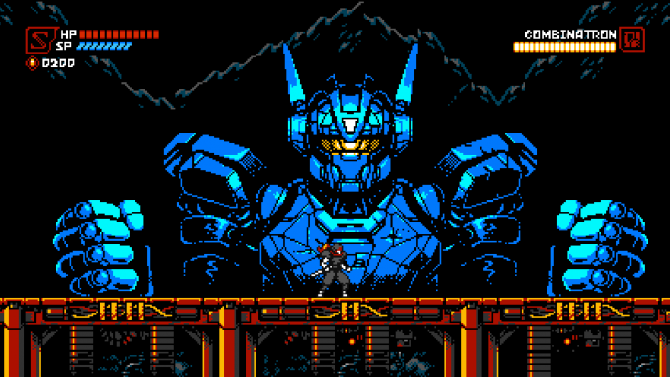
However, King of Cards wasn’t the only NES inspired platformer at Yacht Club’s booth, as they also had the recently announced Cyber Shadow on display. The work of solo-developer Aarne Hunziker, Cyber Shadow is another retro-platformer that invokes the look and feel of NES games without the questionable level design and unfair nonsense. The result is a silky smooth experience that plays as good as it looks. You can unlock new abilities that expend this game’s equivalent to a mana meter, such as the ability to throw shurikens or perform an upwards AOE blast. Enemies fly at you in set patterns, requiring dodging and slashing at a frantic but not unmanageable pace. There are temporary boosts that can be found or bought at checkpoints. One was a flail that would fly across the screen in time with my momentum, an upgrade which was crucial for cutting down the game’s first boss. It seems that what’s old is new again, and I really can’t complain as long as these throwbacks keep being as good as this one.
Super Meat Boy: Forever
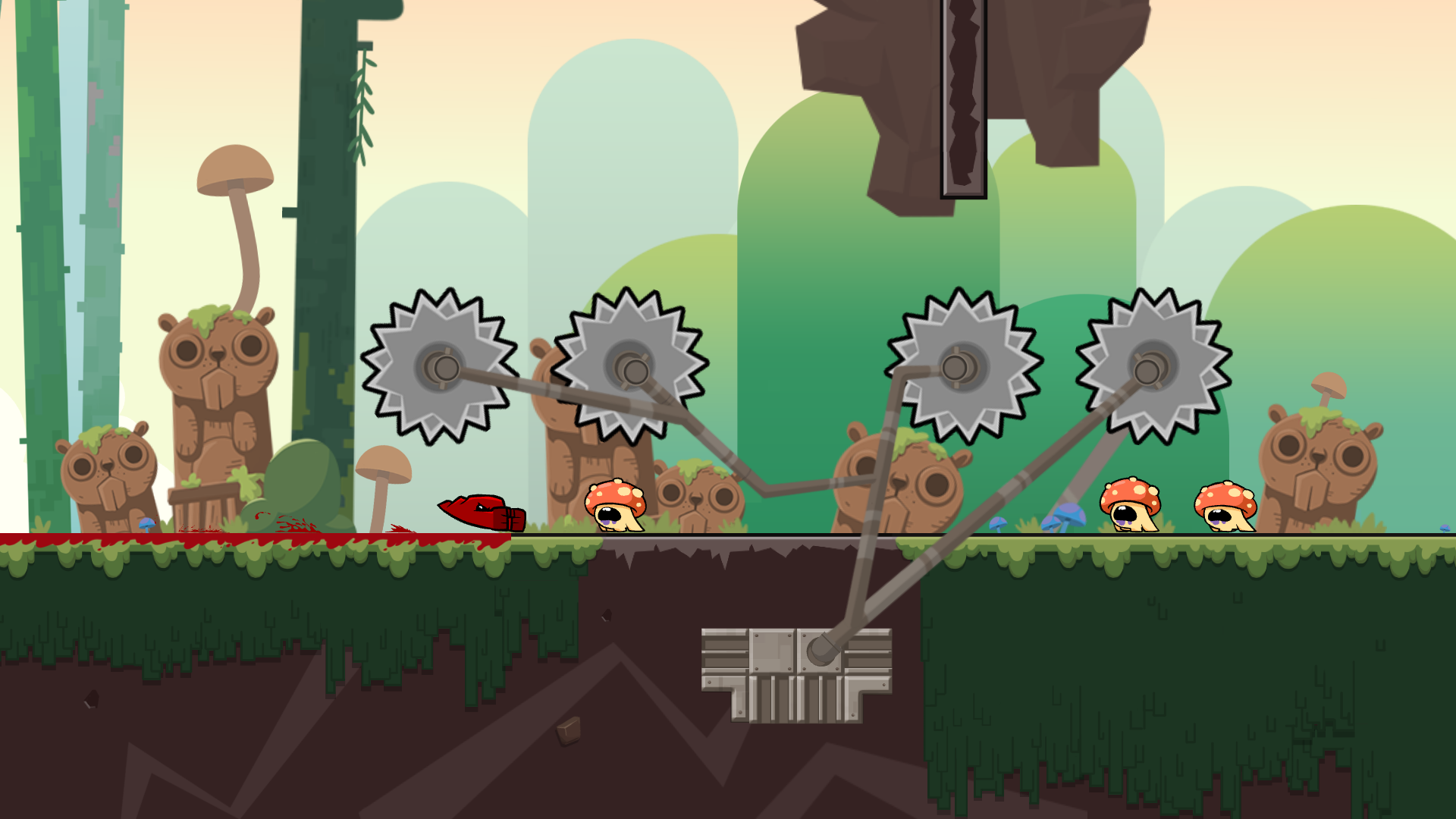
While I summon all of my willpower to not make some terrible pun about how its been forever since the last installment of everyone’s favorite twitch platformer, it is genuinely exciting to see another game from Team Meat nearing completion. Having evolved from a mobile game, Forever is an autorunner with procedurally generated elements. Although that sounds like a concerning combination of words, I can confirm that the game hasn’t lost its flavor of brutal difficult that requires specific precision. It may be a two-button game, with inputs for jump and slide, but these two button presses must be strung together with very particular timing in most cases. Hitting jump a second time while in the air will initiate a punch, and holding down while in the air causes Meatboy to dive, mobility options which are often essential. In terms of the procedurally generated content, the game’s levels were not randomly generated by an intelligent algorithm. Instead, the team made tons and tons of different levels, and the ones that you get while playing through a world will always vary. I’ll admit that I was a bit worried about the core gameplay considering all of these simplifications, but my thirty minutes of playtime was laden with a bevy of deaths, moments of triumph, and quite a few moments that conveyed to me the subtlety of movement.
N1RV-Ann-A and World of Horrors
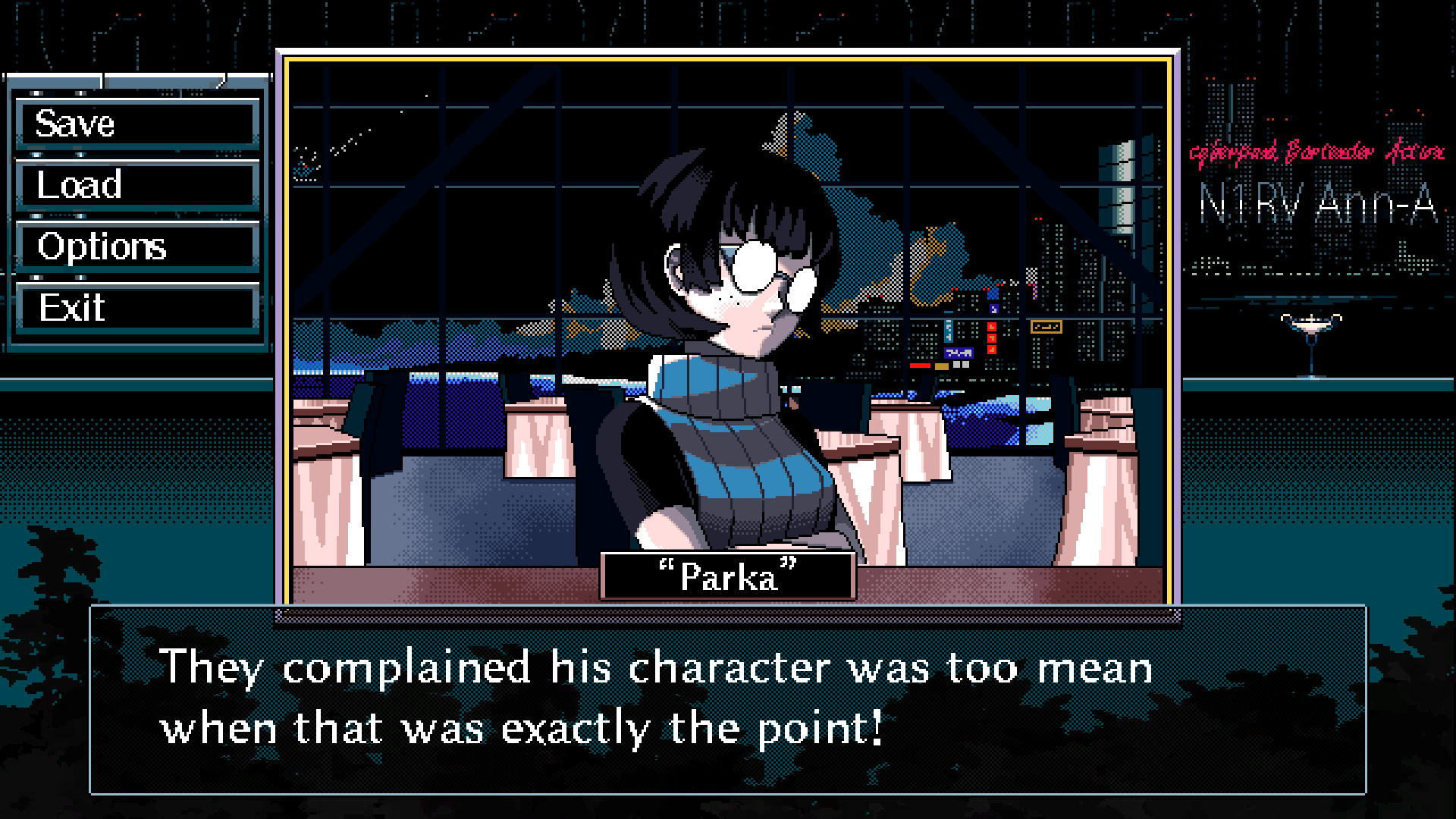
Visual Novels live or die by the quality of their writing, and if the vertical slice I played of N1RV-Ann-A is any indication of what the final product will be like, Sukeban Games’ latest is definitely one to look out for. Set in the same cyberpunk universe as their other bartending sim VA-11 HALL-A, you play as a bartender who works at a resort. At least in the demo, the gameplay mostly consists of mixing the right drink for your clientele based on their conversations with you. And based on what drinks you make them, your talks with your patrons will flow in a variety of directions. In the interaction I played through, you talk with a manga artist who writes erotica. After she gets a few drinks in her she gushes about the pressure of being an artist, the way society misconstrues artist’s intent, and clumsily hits on you. It did a great job of emulating one of those drunken conversations that reverberate in your mind for a few days, the combination of booze and the dim lighting of a bar causing people to open up when they wouldn’t otherwise. The points that the manga artist Parka makes about perceptions of art are a fascinating outlook that I frankly can’t stop thinking about. This concept of playing as a bartender in a cyberpunk world is such a naturalistic way to segue into the personal lives, inner thoughts, and tendencies of a disparate cast of characters, projecting an array of concepts and outlooks in a well-integrated fashion.
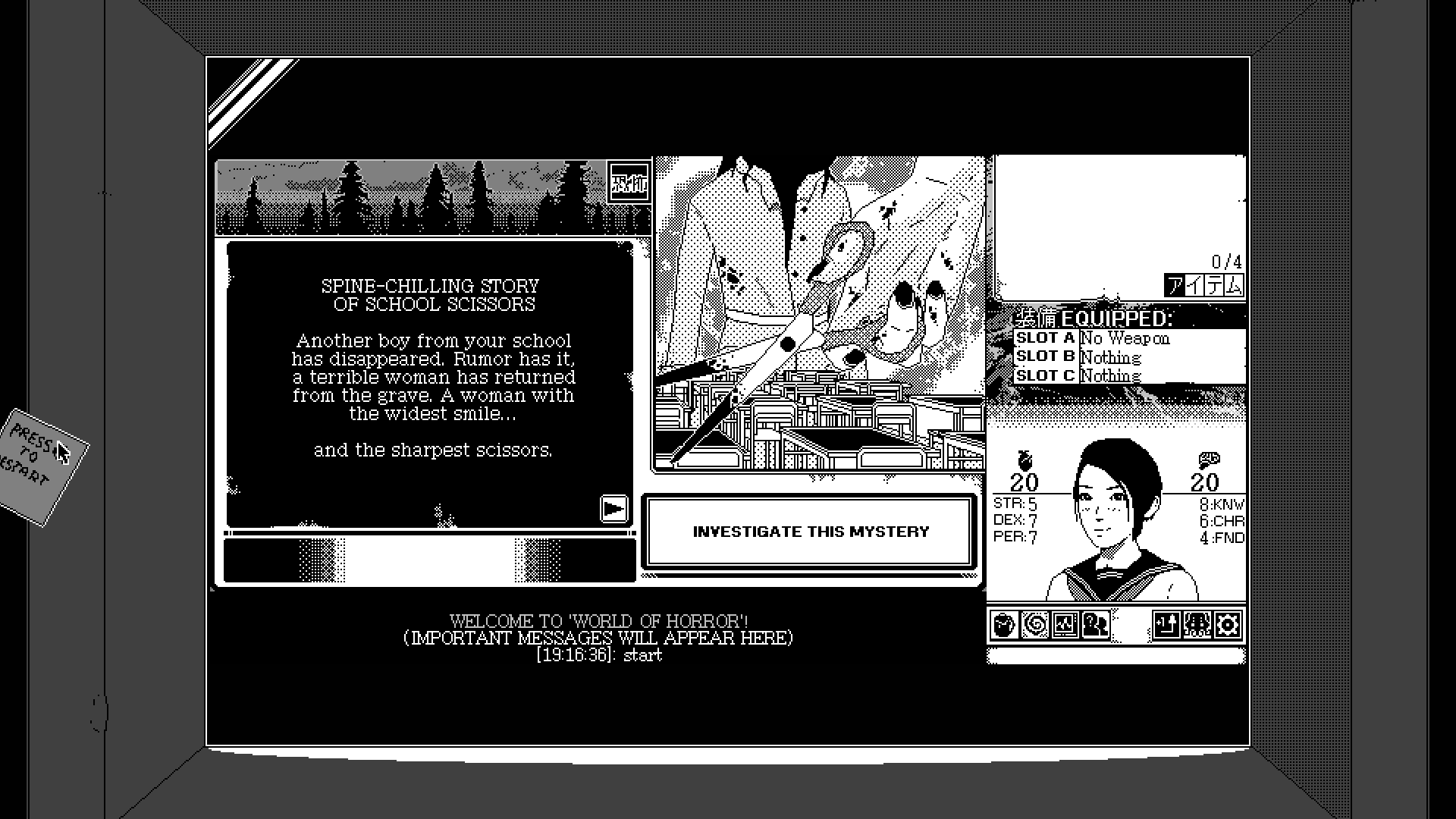
In a somewhat similar vein, Ysbryd Games was also showing World of Horror, a Junji Ito and Lovecraft inspired horror/mystery game. Constructed as a series of interconnected vignettes, you play a disparate cast of characters as you try to uncover the terrible truths of a small coastal town in Japan. It plays like an amalgamation between a turn-based RPG and an adventure game, your decisions having cascading consequences for each playthrough. The art was entirely made in MS Paint, which sounds like a dig, but in this case, is actually an insane feat on par with those other crazy people who beat Dark Souls with DDR pads. The look is meant to emulate early computer games, and seeing these pixelated renditions of Ito-esque monstrosities is thoroughly unnerving. Successfully emulating the slow-building dread of The Shadow Over Innsmouth or Uzumaki, World of Horror is a roguelike which appeals through its punishing tone and gameplay.




